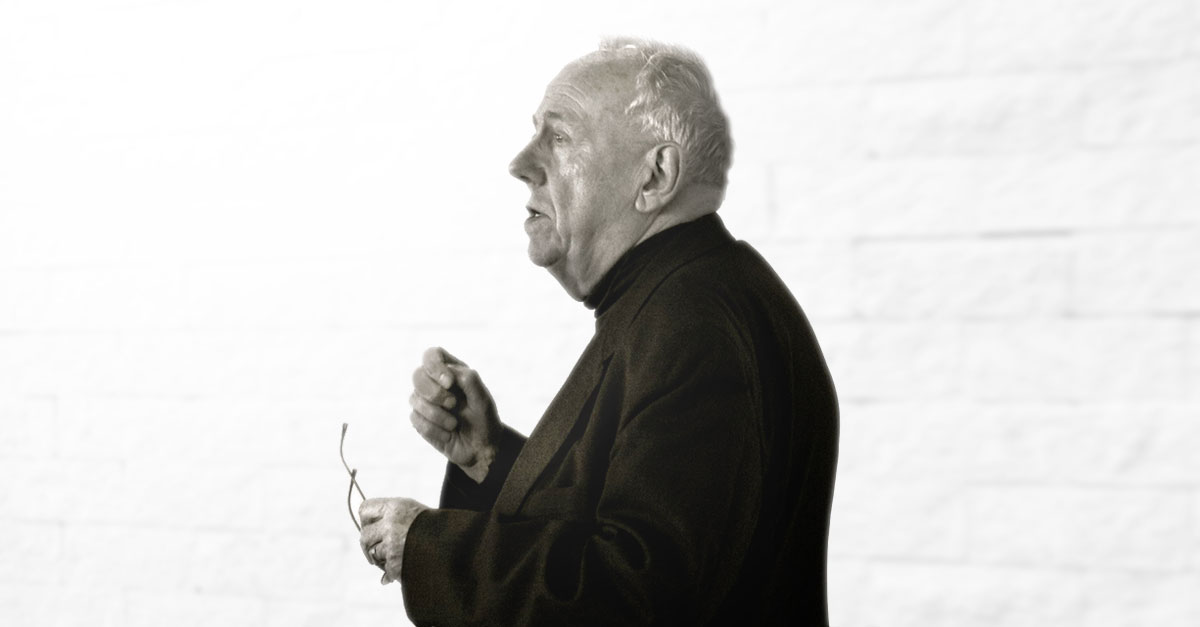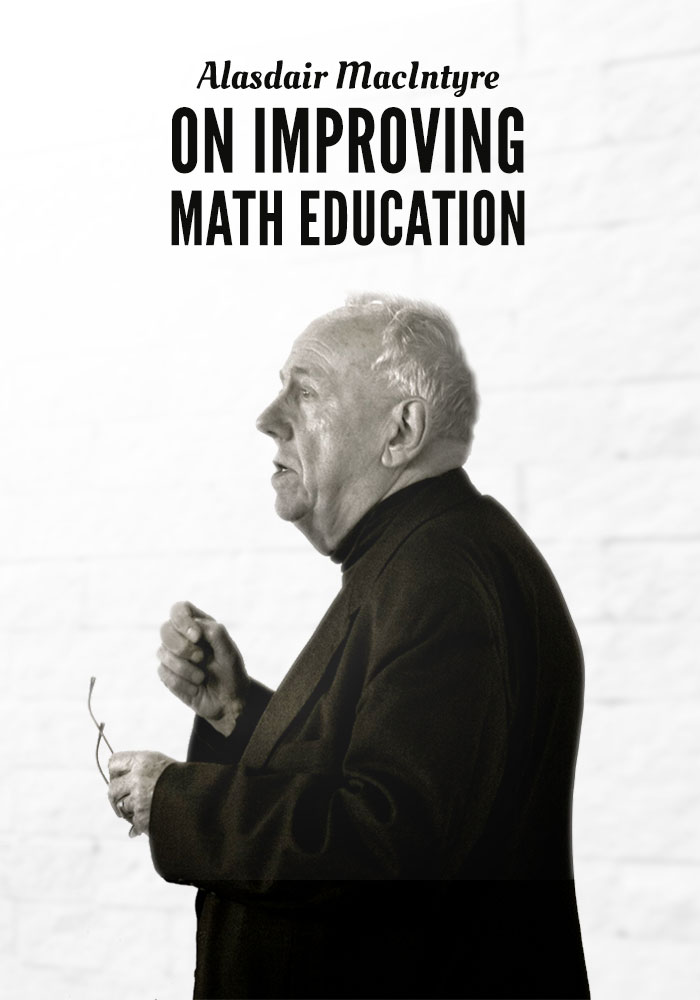Alasdair MacIntyre on Improving Math Education

Alasdair MacIntyre is one of the most celebrated contemporary philosophers. His 1981 book After Virtue is widely seen as having launched a renewed attention to virtue-ethics in moral philosophy. Throughout his career, MacIntyre has also written a lot about education. I recently discovered a dialogue between MacIntyre and Joseph Dunne on education, and wanted to share some highlights that I think mesh well with our curriculum.
One main idea that is found in all of MacIntyre’s writings is the link between action, practice, tradition, and narrative. Consider the pianist: every day she sits down to work on her scales (action) as part of her participation in the art of piano-playing (a specific practice) in order to learn to play the works of Chopin (the tie to tradition.)
For MacIntyre, action, practice, and tradition are found in the context of community: the pianist, her teacher, her audience, the musicians like Bach who have authored the pieces she is learning to play. Narrative, the story we tell about ourselves, is what makes the context of our actions intelligible and meaningful to us. When the pianist says, “I am a piano player,” she is situating herself within a narrative in which Teacher and Fellow Musicians and Audience Members all have a significant role to play in the formation of her own identity.
In the dialogue, MacIntyre writes:
the teacher should think of her or himself as a mathematician, a reader of poetry, a historian or whatever, engaged in communicating craft and knowledge to apprentices.
In the context of Math-U-See, we want both our parents and students to see themselves as budding mathematicians who are tied to a tradition of mathematics and who are honorary members of a community of mathematicians made up of both those living and those like Euclid, Descartes, and Cantor, who have paved the road we travel on. The exciting truth is that you don’t need to be a math expert to teach math to your kids with our curriculum.
The good news is that age is not a factor in learning the basic facts; and Math-U-See, with its integer blocks as the central point of instruction, gives any learner an ability to commit those facts to memory.
We don’t believe that people are either a math-person or not a math-person: instead, we cite the research of Stanford University professor and researcher Carol Dweck on growth mindset, and we recognize that just like we become virtuous by practicing virtue, we can all grow in our mathematical knowledge by practicing mathematics.
Most of us have at one time or another said, “Why do I have to learn algebra anyway?!”
One reason that this frustration can arise is because math education is often seen as something we are doing as preparation for “real life,” where “real life” is seen as the weighty and important thing and math education just seems…boring.
MacIntyre helps us see why picturing math education in this way is harmful and demoralizing. He writes:
our conception of the school is impoverished if we understand it as merely a preparatory institution, within which the students are contained until they are ready to participate in ‘the real thing.’
Instead, math education is about inviting students to see themselves as already participating in the “real thing.” MacIntyre explains that “…in good schools students already become practitioners of arts, sciences and games, participants in such activities as reading novels and poetry with both discrimination and intensity, devising new experiments in which their mathematical skills can be put to use, drawing and painting and making music to some purpose.”
As exciting as it is to be budding mathematicians, let’s also be honest: learning basic math facts like the multiplication table can sometimes be a dry and wearisome task. Our curriculum development team works hard to spice it up with fun activities, but we recognize that sometimes, especially at the early stages, it just takes some grit to get through it.
In the dialogue, MacIntyre writes:
…small children are able to learn and to exercise some skills while participating in enjoyable and purposeful activities, such as singing or playing some music instrument. But even in those activities there are levels of achievement that require what you call inescapably laborious drills.
But crucially, this labor needs to engage our students and part of that engagement comes through having a multisensory approach. MacIntyre writes: “Children also need to learn to see, to hear, to touch, to taste and to smell; that is, to discriminate the object of the senses and remember what has been thus identified. Consider the varieties of visual object and what has to be learned in order to see what is actually there…”
We agree wholeheartedly.
As Chloe Chen writes: “Well-designed, hands-on activities in the classroom foster connections to real-world situations and increase learner engagement.”
We also want to stress that math manipulatives aren’t just for “little kids”. Our curriculum uses manipulatives to teach everything from 1 + 1 to demonstrating how to factor a polynomial or solve an algebraic equation.
In the final portion of the interview, MacIntyre reflects:
The test of the curriculum is what our children become, not only in the workplace but in being able to think about themselves and their society imaginatively and constructively, able to use the resources provided by the past in order to envisage and implement new possibilities.
This vision of education is strikingly congruent with that of Joseph Aoun, president of Northeastern University. In his book on education, Aoun writes that we need to: “…move beyond the canard that students must choose between an economically rewarding career and a fulfilling, elevated inner life. More than ever before, the capacities that equip people to succeed professionally are the same as the virtues espoused by Cardinal Newman in his paeans to ‘liberal knowledge’ – namely an agile mind, refinement of thought, and facility of expression.”
